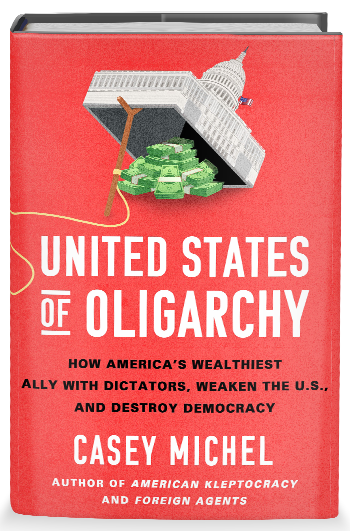NEW: A recent lawsuit alleged that Ukrainian tycoon Ihor Kolomoisky was the largest commercial real estate owner in all of... Cleveland, Ohio.
Here’s how that happened, and what it says about America’s sputtering anti-kleptocracy efforts: thinkprogress.org/how-did-this-u…
Here’s how that happened, and what it says about America’s sputtering anti-kleptocracy efforts: thinkprogress.org/how-did-this-u…
Here's the 104-page lawsuit: scribd.com/document/42188…
The alleged scheme was (relatively) simple: run the funds through a Cypriot bank, set up a series of American shell companies, and snap up a wealth of real estate in Ohio to keep the money safe.
The alleged scheme was (relatively) simple: run the funds through a Cypriot bank, set up a series of American shell companies, and snap up a wealth of real estate in Ohio to keep the money safe.
The alleged scheme also points to something new: using "downtown revitalization" investments in the U.S., instead of simply penthouses and condos, as a way to clean dirty foreign money. 

Another (depressing) issue: Nobody in Cleveland seemed to care about the source of the money, even when the financing network came to light.
Far easier to pretend the network was interested in the city's "history," and that the investments came from a "fondness" for Cleveland.
Far easier to pretend the network was interested in the city's "history," and that the investments came from a "fondness" for Cleveland.

Spoiler: None of the supposed "revitalization" actually took place.
Most of the buildings linked to this network have "fallen into disrepair." One is now a "gaping hole" in downtown Cleveland.
thinkprogress.org/how-did-this-u…
Most of the buildings linked to this network have "fallen into disrepair." One is now a "gaping hole" in downtown Cleveland.
thinkprogress.org/how-did-this-u…

And it wasn't only commercial real estate. The network also purchased a number of steel plants across the U.S.—including one that closed in 2016, laying off over 160 workers. tribtoday.com/news/local-new…
For more detailed analysis of the lawsuit, which "is probably the most detailed study of large-scale money laundering into the United States": atlanticcouncil.org/blogs/ukrainea…
• • •
Missing some Tweet in this thread? You can try to
force a refresh















